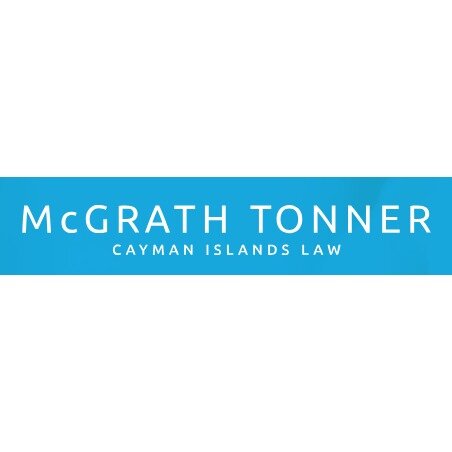Best Debt & Collection Lawyers in Cayman Islands
Share your needs with us, get contacted by law firms.
Free. Takes 2 min.
Or refine your search by selecting a city:
List of the best lawyers in Cayman Islands
About Debt & Collection Law in Cayman Islands:
Debt & Collection law in the Cayman Islands regulates the process of collecting debts owed by individuals or businesses. It encompasses various legal mechanisms to recover unpaid debts, such as court proceedings, enforcement of court orders, and insolvency proceedings.
Why You May Need a Lawyer:
You may require the assistance of a lawyer in Debt & Collection matters if you are facing difficulties in recovering debts owed to you, dealing with debt collectors, or if you are facing legal action due to unpaid debts. A lawyer can help you navigate the legal processes, protect your rights, negotiate settlements, and represent you in court if necessary.
Local Laws Overview:
Under Cayman Islands law, creditors have several legal options to recover debts, including filing a lawsuit in the Grand Court, obtaining a judgment against the debtor, and enforcing the judgment through various means such as wage garnishment, attachment of assets, or bankruptcy proceedings. It is important to be aware of the Limitation Law, which sets a time limit for initiating legal action to recover debts.
Frequently Asked Questions:
Q: Can a debt collector harass me in the Cayman Islands?
A: No, debt collectors must abide by the Debt Collection Regulations which prohibit harassment, threats, or abusive behavior towards debtors.
Q: How long do I have to file a lawsuit to recover a debt in the Cayman Islands?
A: The Limitation Law sets a time limit of 6 years to file a lawsuit to recover a debt.
Q: Can a creditor seize my property to recover a debt?
A: Yes, if a creditor obtains a judgment against you, they can enforce it by seizing your assets or garnishing your wages.
Q: What are the consequences of bankruptcy in the Cayman Islands?
A: Bankruptcy involves the liquidation of your assets to repay debts, and may result in restrictions on obtaining credit in the future.
Q: Can I negotiate a settlement with creditors instead of going to court?
A: Yes, creditors are often willing to negotiate settlements to avoid costly legal proceedings.
Q: Can I dispute a debt claimed by a creditor?
A: Yes, you have the right to dispute a debt if you believe it is inaccurate or if you have valid reasons for non-payment.
Q: What are my rights if a debt collector contacts me?
A: Debt collectors must adhere to strict rules and regulations, including disclosing their identity and the amount of debt owed.
Q: Can I represent myself in Debt & Collection court proceedings?
A: While it is possible to represent yourself, it is advisable to seek legal representation to navigate the complexities of the legal process effectively.
Q: Will my credit score be affected by unpaid debts in the Cayman Islands?
A: Yes, unpaid debts can negatively impact your credit score and make it harder to obtain credit in the future.
Q: How can a lawyer help me with Debt & Collection matters?
A: A lawyer can provide legal advice, negotiate with creditors, represent you in court, and help protect your rights throughout the debt recovery process.
Additional Resources:
For more information on Debt & Collection matters in the Cayman Islands, you can contact the Cayman Islands Monetary Authority or seek assistance from the Cayman Islands Legal Practitioners Association.
Next Steps:
If you require legal assistance with Debt & Collection issues in the Cayman Islands, it is recommended to consult with a qualified lawyer who specializes in this field. They can assess your situation, provide legal advice, and represent your interests in resolving debt-related matters.
Lawzana helps you find the best lawyers and law firms in Cayman Islands through a curated and pre-screened list of qualified legal professionals. Our platform offers rankings and detailed profiles of attorneys and law firms, allowing you to compare based on practice areas, including Debt & Collection, experience, and client feedback.
Each profile includes a description of the firm's areas of practice, client reviews, team members and partners, year of establishment, spoken languages, office locations, contact information, social media presence, and any published articles or resources. Most firms on our platform speak English and are experienced in both local and international legal matters.
Get a quote from top-rated law firms in Cayman Islands — quickly, securely, and without unnecessary hassle.
Disclaimer:
The information provided on this page is for general informational purposes only and does not constitute legal advice. While we strive to ensure the accuracy and relevance of the content, legal information may change over time, and interpretations of the law can vary. You should always consult with a qualified legal professional for advice specific to your situation.
We disclaim all liability for actions taken or not taken based on the content of this page. If you believe any information is incorrect or outdated, please contact us, and we will review and update it where appropriate.
Browse debt & collection law firms by city in Cayman Islands
Refine your search by selecting a city.

















